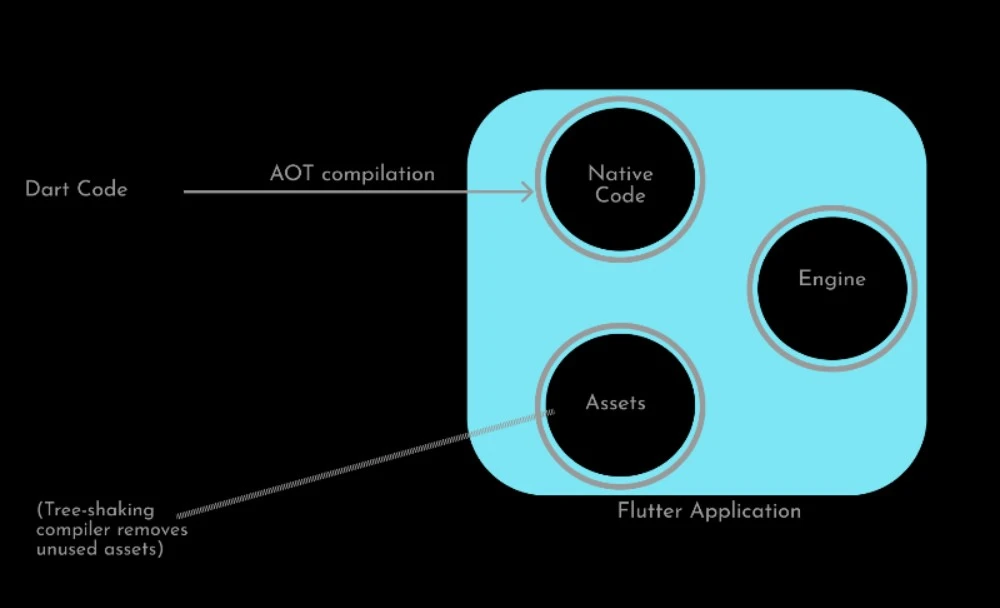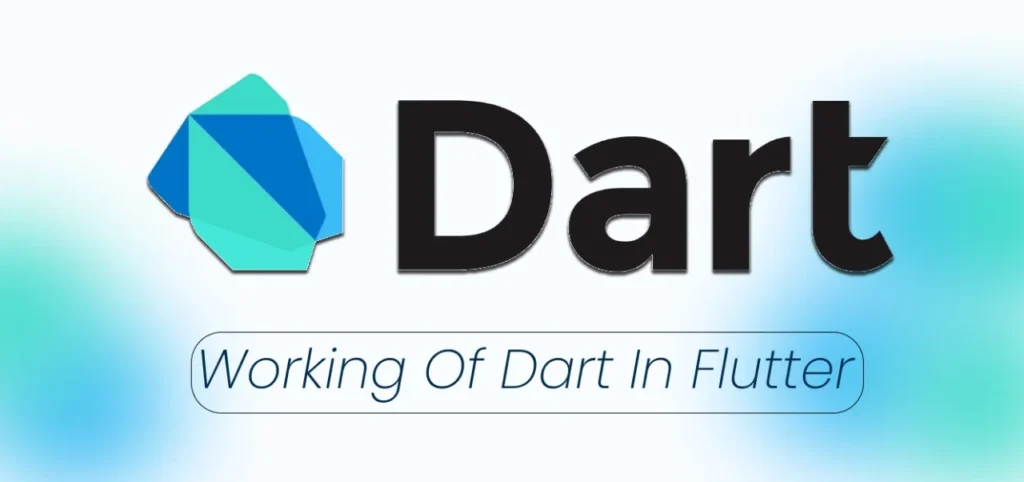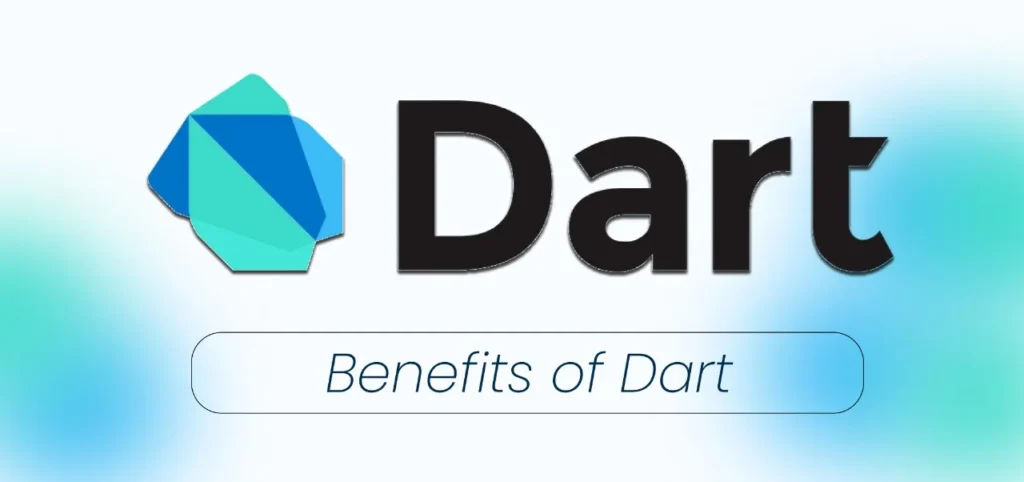Working of Dart in flutter: How Dart code runs in a Flutter app is an intriguing content. This is a small overview for the curious, and Flutter development doesn’t need unequivocal knowledge of this content, so feel free to skip this section if you want to learn Dart rather.
As bandied in the former section, Flutter uses Just- In- Time compilation in development and AOT compilation in release mode. When applying JIT compilation, Flutter uses a virtual machine( VM) to run Dart code. This leads to the running of code slower than release applications might and adds some size to the debug file. This isn’t the full clarification for the huge debug build file size you might witness when building a Flutter app. The big debug build size is due to the app structure with basically everything in the design, so you don’t need to rebuild to use new means. Alongside this, given optimizations which remove unused code – known as tree shaking are also not applied when running a debug build of the app.
Things change when a release build is built – no Dart Virtual Machine runs code in the release build. Rather, we compile the code( ahead of time) to native ARM libraries and add to the design, avoiding the need for a Dart VM.
A Flutter app doesn’t use platform widgets and paints all UI itself. Hence, Flutter code compiles all gates gestures on the screen and picture. The picture below depicts the way of working of dart in flutter.

Hello, World!
Since we are writing our first Dart program to show, what could be better than quoting “Hello World”. This should be a affable break from the daunting introductory programs in other programming languages.
void main(){
print('Hello, World!);
}Note: Writing void is voluntary then as function return types are voluntary( but you still should).
A many effects to note:
- Top- position functions are allowable; hence, no class encloses the main function.
- A print() function based on the console to give the required output.
- The public keyword doesn’t live in Dart. Further on that in the coming blogs.
- Unlike languages like Kotlin and Python, semicolons still live in Dart- land.
Still, semicolons may soon be voluntary as well.
For more detailed information do check Documentation.


